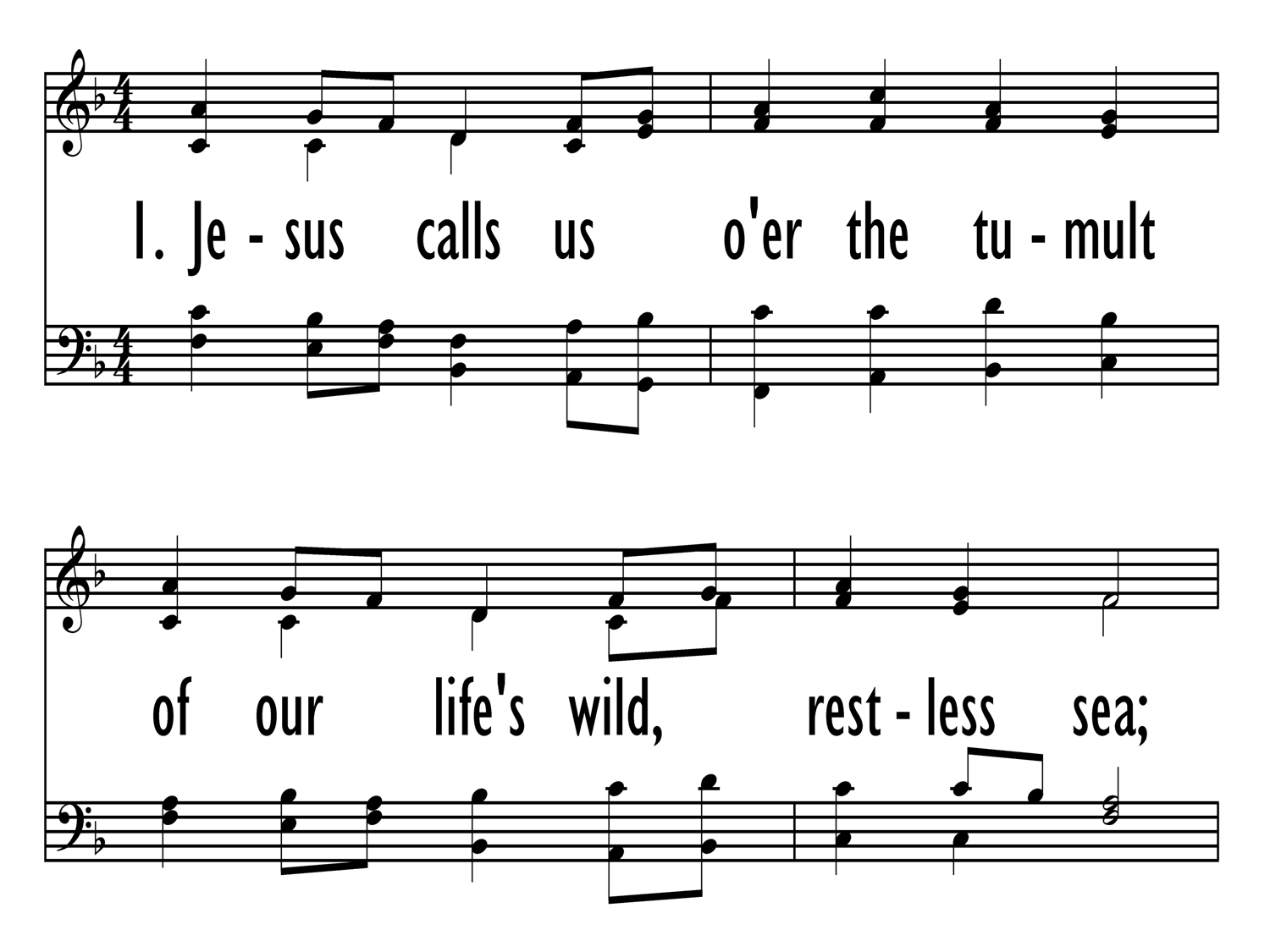- |
User Links
See My Hands and Feet
Hymn Information
- First Line
- Touch that soothes and heals the hurting
- Author
- Mary Louise Bringle, b. 1953
- Tune Name
- PLEADING SAVIOR
- Harmonizer
- Ralph Vaughan Williams (1906)
- Tune Source
- J. Leavitt’s <i>Christian Lyre</i>, 1830
- Topic
- Evangelism · Grateful Living · Justice · Elements of Worship: Charge and Blessing
Copyright Information
- Text Copyright
- © 2002 GIA Publications, Inc
- Tune Copyright
- Harm. - Public Domain in North America, used by permission of Oxford University Press for other territories · Melody - Public Domain
- Reprint/Projection Information
- Words: Permitted with a license from OneLicense.net. If you do not own this license, please contact the copyright holder for permission.
Scripture References
Confessions and Statements of Faith References
Further Reflections on Confessions and Statements of Faith References
According to the confessions, Christian worshipers are called to continue in service. Heidelberg Catechism, Lord’s Day 12, Question and Answer 32 instructs us to think of ourselves as “a member of Christ…[who] share in his anointing.” So we profess “I am anointed to confess his name, to present myself to him as a living sacrifice of thanks, to strive with a free conscience against sin and the devil in this life, and afterward to reign with Christ over all creation for eternity.” We serve him with good works, “…so that with our whole lives we may show that we are thankful to God for his benefits, so that he may be praised through us, so that we may be assured of our faith by its fruits, and so that by our godly living our neighbors may be won over to Christ” (Heidelberg Catechism, Lord’s Day 32, Question and Answer 86). And so we are moved to “…embrace God’s mission in [our] neighborhoods and in the world...” (Our World Belongs to God, paragraph 41). Christians, therefore, leave worship believing that “to follow this Lord is to serve him wherever we are without fitting in, light in darkness, salt in a spoiling world” (Our World Belongs to God paragraph 43).


 My Starred Hymns
My Starred Hymns







